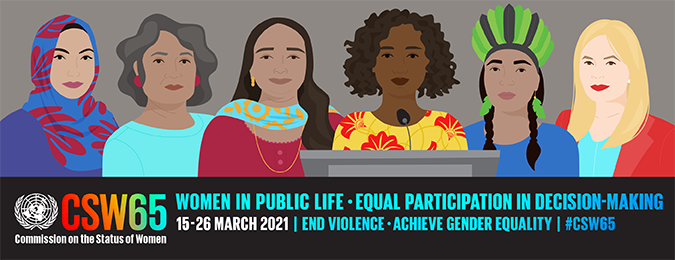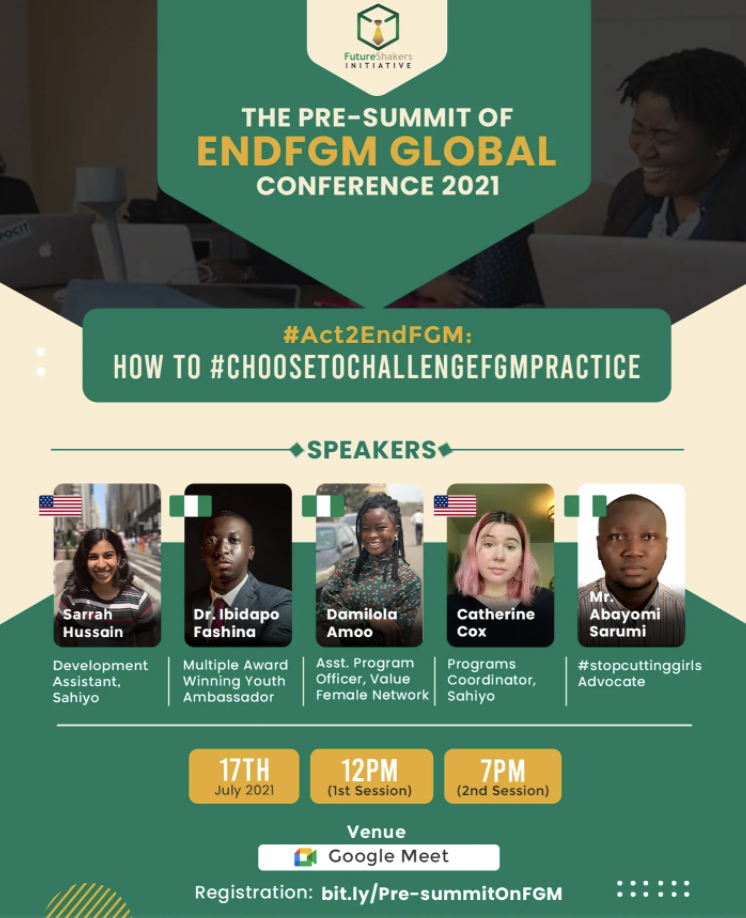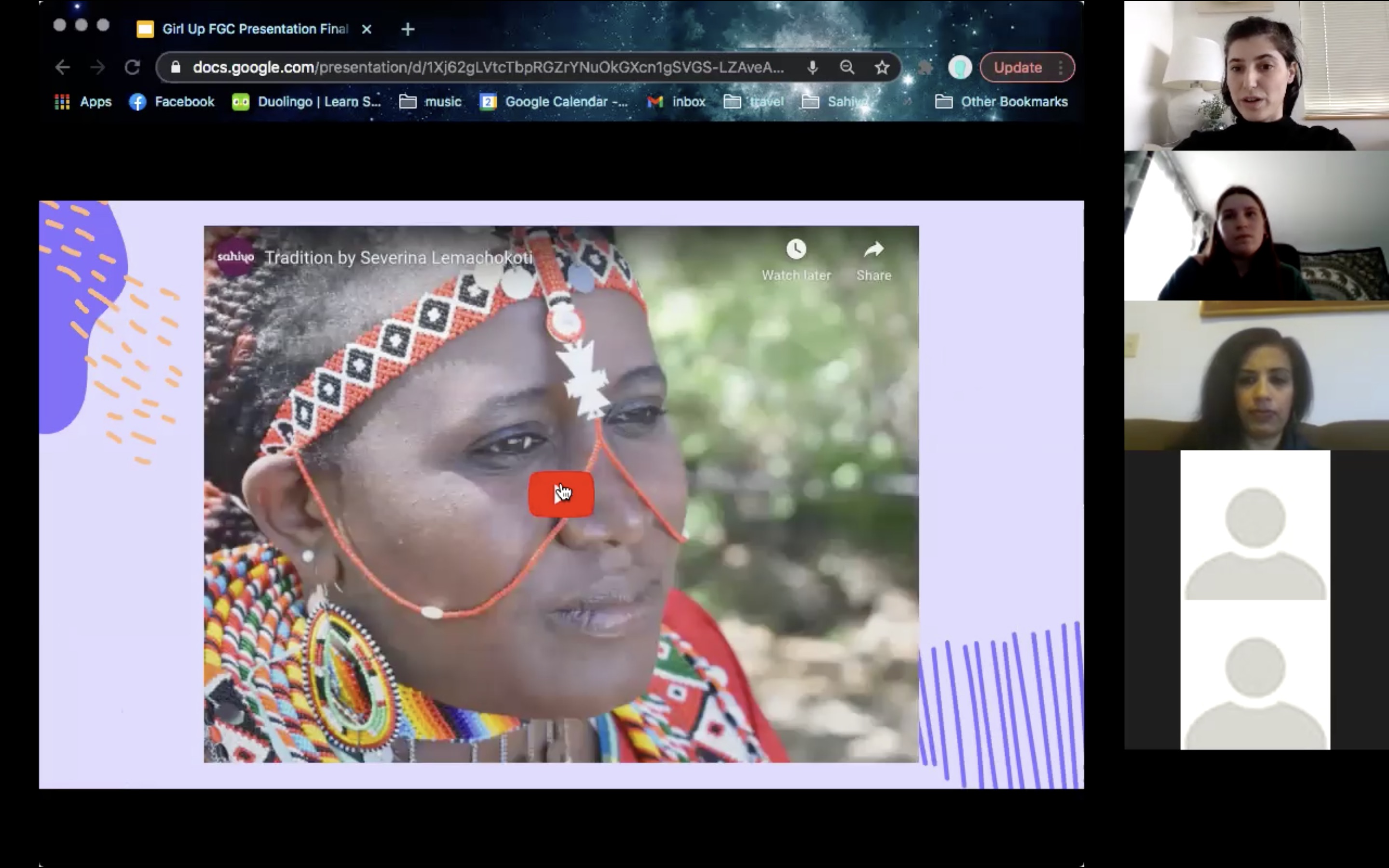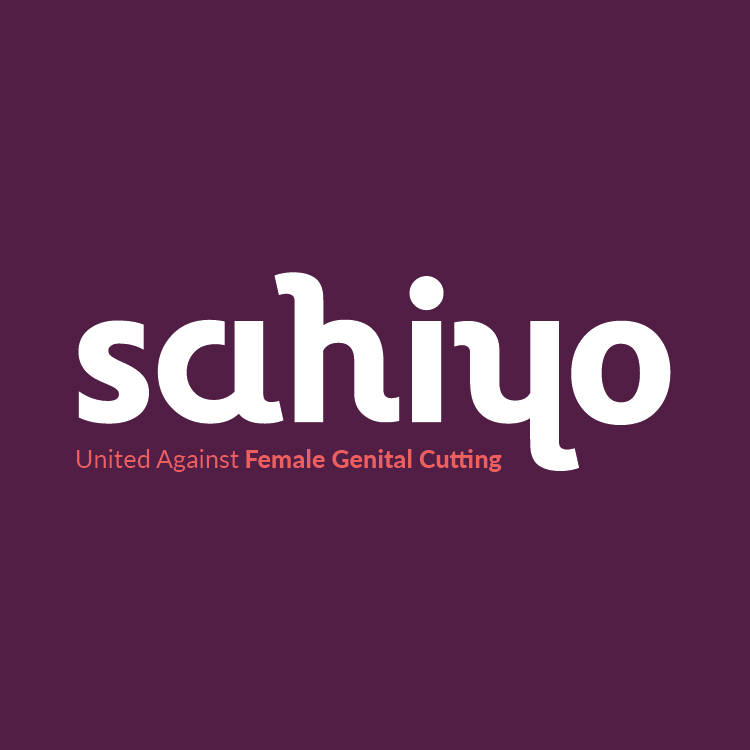By Madrisha Debnath
The End FGM European Network hosted a webinar titled, “Addressing female genital mutilation/cutting (FGM/C) while leaving no one behind,” to discuss FGM/C and the framework of intersectionality in February. The speakers of the event included Helena Dalli, EU Commissioner for Equality; Aïda Yancy, an LGBTQ+ feminist, anti-racist activist currently working at RainbowHouse Brussels and an expert on FGM/C; Hadeel Elshak, Youth Ambassador of End FGM European Network; and Sietske Steneker, UNFPA Brussels Director.
Keynote speaker Dalli addressed the data regarding FGM/C among the European Union member countries. According to the European Institute for Gender Equality, 600,000 to 900,000 women and girls are at risk of FGM/C in thirteen European countries alone. The European Commission is working to end the practice of FGM/C with an intersectional approach. Working with ground level activists, community-based workers and survivors to understand the different ways in which each woman is affected is crucial toward encouraging the abandonment of the practice. Avoiding stigmatisation, racism, and xenophobia is imperative for ending gender-based violence and structural inequality.
Yancy explained the concept of intersectionality originating from Black Feminist Theory. The term was coined by Kimberlé Williams Crenshaw (1989) in her seminal work, “Demarginalizing the Intersection of Race and Sex: A Black Feminist Critique of Antidiscrimination Doctrine, Feminist Theory and Antiracist Politics.” Intersectionality happens when a person is at the crossroads of more than one systematic oppression. The marginalized people who are standing at the crossroads, for example, a black woman or a woman of colour, is not only facing racism and sexism, but is subjected to something bigger that comprises the effect of both sexism and racism. Intersectionality doesn’t mean simply adding the systemic oppression that a person is facing. Rather, it means that the effect is cumulative instead of being additive since these categories of oppression are not mutually exclusive. Intersectionality is more than a concept; it’s a tool to identify issues of access for marginalized people. Since social institutions work in a single lane fashion, recognising oppressions exclusive of one another by using intersectionality as a tool will help to identify social issues.
Elshak talked about her identities of being black, woman, Muslim, Sudanese, young, and of the first generation to be living in United Kingdom, as well as how her multiple identities have shaped her everyday experiences. She shared her experiences of forming the “Youth Engagement Manifesto: Tackling FGM in Europe- Strategies for Effective Engagement of Youth from FGM-affected communities.” She talked about how, in being young, she has disrupted the general notion of older people being wiser, and made her opinion known in advocating against FGM/C.
Steneker presented the report on the state of the world population on harmful practices titled, “Against My Will: Defying the Practices that Harm Women and Girls and Undermine Equality,” by the United Nations Populations Fund (UNFPA) that include nineteen different types of harmful practices, including virginity testing, child marriage, breast ironing, body modifications, female genital cutting, and other harmful practices controlling women’s bodies and sexualities. According to the report, over 200 million girls and women have undergone some form of genital cutting. An estimated 52 million women and girls worldwide have undergone the practice performed by medical practitioners, doctors, nurses or midwives. Girls who are forced into marriage as children may also be survivors of FGM/C or are at a higher risk. Everyday an average of 33,000 girls are being forced into marriage.
Watch “Addressing female genital mutilation while leaving no one behind.”







